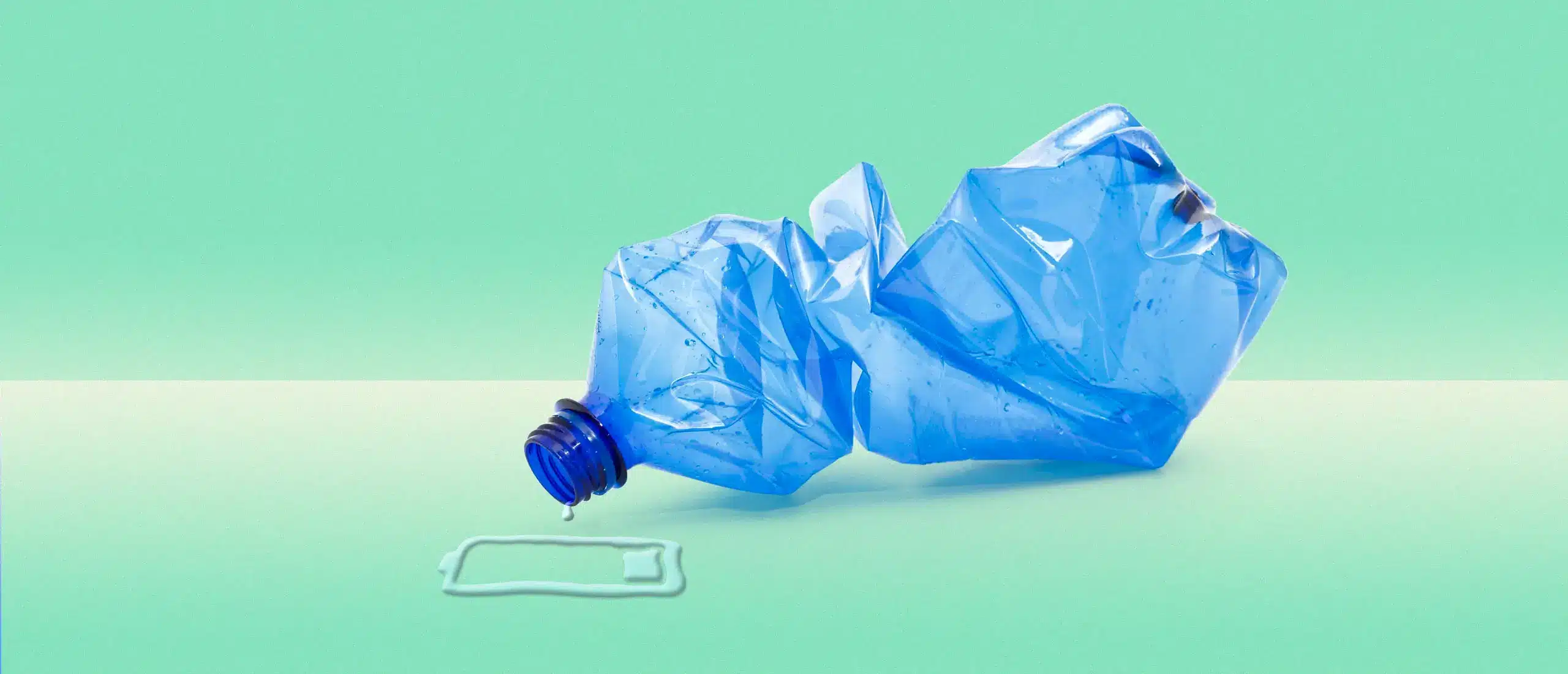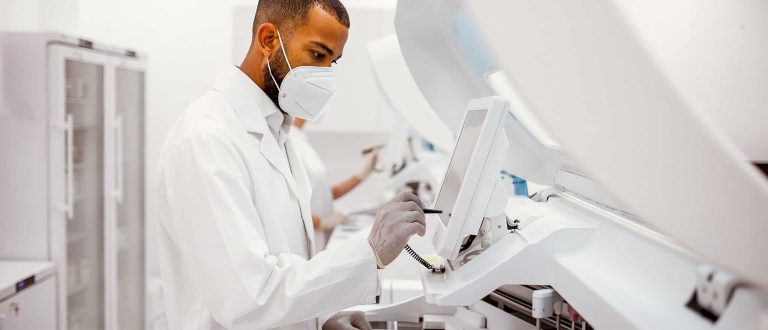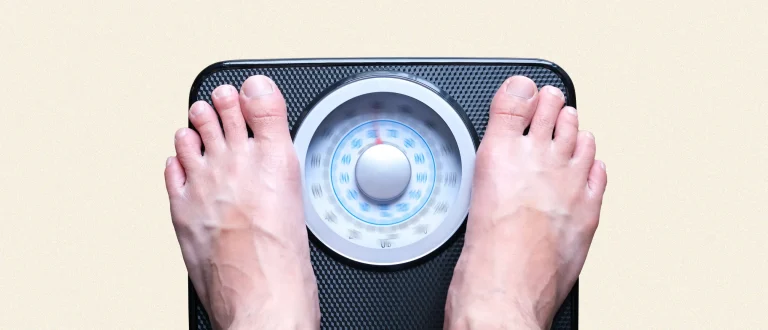30-Second Takeaway
- Chemicals called endocrine disruptors are found is lots of household items like plastic bottles, furniture, and food containers.
- These chemicals can impact hormone levels, including testosterone.
- Five to avoid: phthalates, BPA, pesticides, POPs, and parabens
When you think about toxic health threats, you probably think of pollutants being belched out of smokestacks, not the bottles lining your bathroom counter or the can of beans in your pantry. Not so fast.
Everyday products like shampoo bottles and aluminum cans contain chemicals called endocrine disruptors, which alter normal hormone function.
Some of these chemicals mimic natural hormones like estrogen, while others disrupt metabolic pathways to suppress the production of testosterone.
Endocrine disruptors can block or amplify hormonal messages sent to and from your immune, neurological, and reproductive systems. Research has linked these man-made chemicals with early puberty, learning disabilities, lower IQ, and DNA damage. In men, they’ve been linked to low testosterone, reduced sperm motility, and lower sperm count.
You can’t avoid endocrine disruptors completely, says Anastasia Jandes, M.D. PharmD, IFMCP. “They’re everywhere.”
But you can be aware.
“In my opinion, that is more than half the battle when it comes to this topic,” she told members of the Hone Community in an AMA. “You begin to pick up little pieces of information that you can use to make better choices. You begin to think about, ‘Would I just reach into that bucket and grab the scoop with the fertilizer, or would I put my garden gloves on first?’”
Which endocrine disruptors impact testosterone? Here are four of the biggest offenders—and how to avoid them.
Spot low T
Phthalates
Beware: These estrogen-mimicking plastic softeners leak out of plastic products and get into your body when you inhale, ingest or absorb them through your skin.
You need to be really aware of what you put on your skin, says Jandes. “Our skin is the biggest organ in the body and has high levels of absorption for lipophilic chemicals”—chemicals that dissolve in fats.
Found in: plastic bags, shower curtains, garden hoses, food packaging, soaps, lotions, hair products, deodorants, raincoats, and vinyl flooring.
How they harm T: Studies show phthalates inhibit testosterone production in animals (1, 2), and reduce fertility by damaging sperm in humans (3).
Avoid them:
- Mop and vacuum regularly (one phthalate, DEHP, can leech from products and settle as dust in the air)
- Avoid PVC shower curtains and vinyl plastics (hint: they have a recycling code 3)
- Eat less processed and packaged foods
- Pick phthalate-free grooming products. “You can find a whole slew of products at Whole Foods that are phthalate-free, all the way down to the lotion and the hair products you use,” says Jandes.
BPA
Beware: Bisphenol-A (BPA) is an anti-androgen; it blocks the normal effects of testosterone in the body.
Found in: Food containers, baby bottles, water pipes, dental sealants, optical lenses, water storage tanks, the lining of aluminum cans, and receipts printed on thermal paper.
“BPA is also found on thermal receipts,” says Jandes. “You grab them by instinct, but it goes right through the skin. That’s why more cashiers are wearing plastic gloves; to protect their skin from the absorption of BPA.”
How it harms T: BPA blocks the effect of testosterone (4), lowers sperm count (5), and hampers sperm production (6).
Avoid it:
- Pick fresh in-season produced instead of canned
- If you can’t avoid BPA-lined cans, rinsing the food may lower BPA levels
- Skip paper receipts; choose email options
- Swap plastic water bottles for reusable glass or stainless steel
- Never microwave your food in plastic. “Don’t even let plastic come anywhere near your kitchen,” says Jandes. If something comes in a plastic container, put it in a ceramic dish to heat it. “You might have to adjust the temperature or cook time,” she says, but it’s worth it.
Pesticides
Beware: Over time, low levels of pesticides sprayed on crops can accumulate in your body. Several studies have shown that pesticides are also endocrine disruptors.
Found in: Produce, especially kale, collard, and mustard greens, as well as hot peppers and bell peppers, which have been found to have the highest levels of pesticides.
Ditto strawberries, warns Jandes. “If you look up a video of who’s spraying those strawberries, they literally put on Hazmat suits, head to toe.” And apples. “Europe has banned apples from the U.S. because we use so many pesticides.”
How it harms T: Reduces sperm motility and lowers testosterone (6).
Avoid it:
- Choose organic fruits and vegetables. If you don’t want to buy all organic, focus on the foods on the Environmental Working Group’s Dirty Dozen, says Jandes.
- Wash produce before you eat it. Peel non-organic produce.
- Avoid fungicides (chemicals that prevent the growth of fungi) by keeping kitchen areas clean and dry.
- Adopt a ‘no shoes’ policy at home to prevent lawn pesticides from being tracked inside.
Persistent Organic Pollutants
Beware: Also called “forever chemicals,” these endocrine disruptors are by-products of industrial, agricultural, and manufacturing processes.
Found in: Paints, industrial oils, joint caulking and floor tiles, dairy products, meat and fish (especially farm-raised)
How they harm T: disrupts testosterone production, lowers free testosterone, and increases sex hormone binding globulin (SHBG), a protein that controls the amount of testosterone your body can use, and luteinizing hormone (LH), which can make free testosterone inactive (7,8).
Avoid them:
- Buy hormone-free meats and dairy products
- Buy wild-caught fish
- Avoid non-stick pans
- Don’t microwave food in packages or plastic wrap
- Store paints and other toxic products in the garage or storage space
Parabens
Beware: Widely used for their antimicrobial and preservative properties, parabens are found in many personal care products and are also used as food preservatives to prevent the growth of harmful mold and bacteria.
Found in: Hand soap, body lotion, shampoo, conditioner, face lotion, toothpaste, sunscreen, pharmaceuticals, foods, and beverages
How they harm T: Decrease testosterone, damage sperm shape and motility
Avoid them:
- Read labels. Avoid products with methyl, ethyl, propyl, butyl, or benzyl ingredients; these are all members of the paraben family
- When you’re buying grooming products and scented candles, opt for plant-based, organic options.
Other Ways to Minimize Testosterone Damage From Chemicals
Even if you adopt all of the above tips, completely removing endocrine disruptors from your life is impossible. But you can take steps to mitigate the damage:
- Use an infrared sauna to help detoxify some endocrine disrupting chemicals from your system (9).
- Take liver-detoxifying supplements like NAC (N-acetylcysteine), glutathione, glycine, and milk thistle (10).
- Take glutathione or boost your natural levels. “Glutathione is the major antioxidant in the body, most important way to detoxify through all cells in the body,” says Jandes.
- Add a B complex vitamin, especially if you work with or near toxic chemicals, says Jandes. “B complex has all the B vitamins, which are associated either phase one or phase two detox reactions.”
GET GLUTATHIONE
The Bottom Line
Endocrine disrupting chemicals are found in many household products and can lower testosterone and sperm health. The best way to avoid damage is by limiting your exposure. If you can’t, infrared light and some supplements including glutathione can minimize the damage from these chemicals.
- Perinatal exposure to the phthalates DEHP, BBP, and DINP, but not DEP, DMP or DOTP, alters sexual differentiation of the male rat.
- The plasticizer diethylhexyl phthalate induces malformations by decreasing fetal testosterone synthesis during sexual differentiation in the male rat.
- Phthalate exposure and human semen parameters.
- Endocrine-disrupting potential of bisphenol A, bisphenol A dimethacrylate, 4-n-nonylphenol, and 4-n-octylphenol in vitro: new data and a brief review.
- Exposure to nonpersistent insecticides and male reproductive hormones.
- Bisphenol a: an emerging threat to male fertility
- Serum levels of 2,2’,4,4’,5,5’-hexachlorobiphenyl (CB-153)in relation to markers of reproductive function in young males from the general Swedish population.
- Fertility and markers of male reproductive function in Inuit and European populations spanning large contrasts in blood levels of persistent organochlorines.
- Human elimination of phthalate compounds: blood, urine, and sweat (BUS) study.
- Human excretion of bisphenol A: blood, urine, and sweat (BUS) study.















